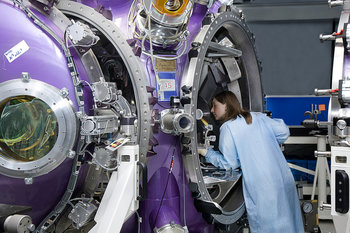
Cause & Effect
The basis of determinism is the observation that events have a cause or, more commonly, a complex set of causes.Randomness
Randomness is when an event is not fully predictable. Generally speaking, the existence of any randomness whatsoever causes the future to be unpredictable such that there are a large number of possible future outcomes.Chaos Theory
Chaos is the ability of a small change to lead to a completely different future. This can amplify small random events and makes things much more difficult to predict. For example, a child may find a book by chance that changes their entire future whereby they invent something that alters the entire course of human civilization.Scientific Determinism
Scientific determinism is the idea that if you had information about the state of every small particle in the universe, complete knowledge of all natural laws and unimaginably enormous processing power, then you could predict the entire future of the universe with certainty. This was a commonly held belief amongst 19th century scientists but has been largely discredited by modern science.Theological Determinism
Theological determinism is the idea that the future is completely preordained by a divine being or beings.Predeterminism
Predeterminism is the idea that the future of the universe was inevitable from the start. This requires that the universe be free of randomness or spontaneous free will. In other words, predeterminism argues that anything that appears random is simply a lack of understanding and that a natural law does exist to predict such events.Fatalism
Fatalism is the belief that randomness is really a mysterious force known as fate that makes everything predetermined.Probabilistic Universe
Where randomness occurs, it may be partially predictable with probabilities. Where this is the case, you may have a number of possible futures each with a calculable probability of occurring.Many Worlds Interpretation
The many worlds interpretation is the idea that anything that can happen does happen such that all non-zero probability events fork a new universe.Quantum Indeterminacy
Quantum indeterminacy is a characteristic of standard quantum physics that states that the physical world at its smallest scale can't be predicted with certainty because small particles exhibit randomness.Retrospective Determinism
Retrospective determinism is a logical bias or fallacy that views the past as being more inevitable than it really was at the time. For example, a jury that believes a drivers distracted actions made an accident inevitable when in fact most drivers who act in a similar way escape any major repercussions.Causa Sui
Cause sui, or "cause of self", is the idea that a being or thing can be self-creative such that it pursues its own purpose not dictated by physical realities.Free Will
Free will is the idea that humans act in inspired ways that are neither random nor predetermined by biology, experience or a divine being.Predetermined Free Will
Oddly, free will isn't necessarily inconsistent with determinism if your free will has some sort of cause-and-effect flow to it. In other words, it is possible that your future self is predetermined by your current self even if you are completely self-defining.Spontaneity
Spontaneity is the free will equivalent of randomness. In other words, it is the idea that your current self doesn't make your future self inevitable because you are somewhat unpredictable.Notes
Determinism is a philosophical question that would be very difficult to prove one way or another such that it is likely to remain permanently debatable. This is the reason it is viewed as a belief as opposed to a hypothesis -- it isn't testable.| Overview: Determinism | ||
Type | ||
Definition | The belief that all events are completely determined by their causes such that the future is predictable or inevitable. | |
Related Concepts | ||

































